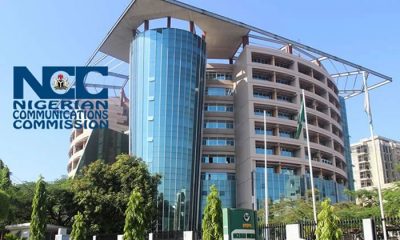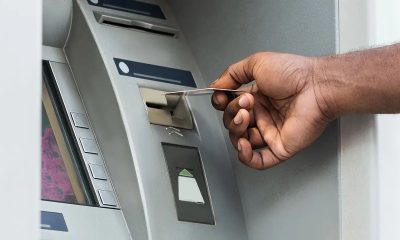Uncategorized
NFIU alerts banks to new fraudulent ways of claiming money from abroad
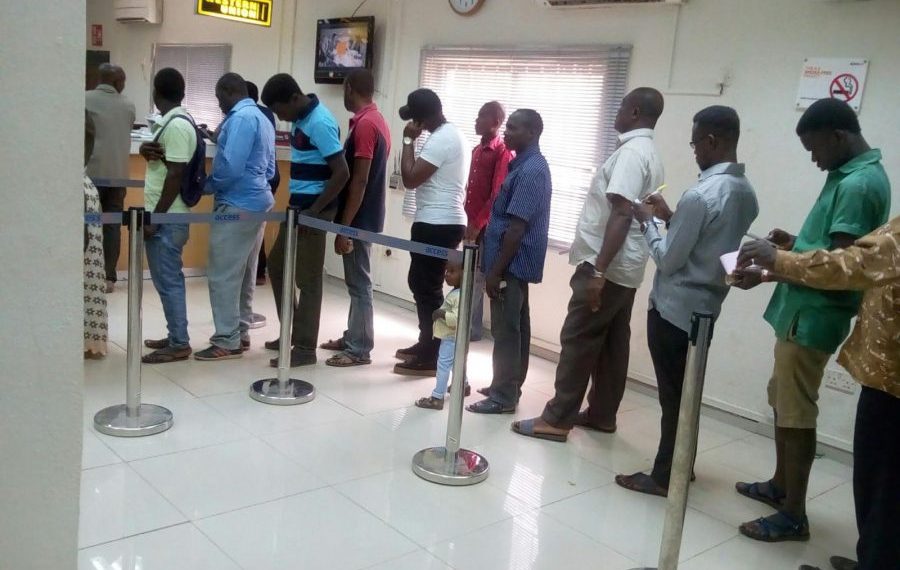
NFIU alerts banks to new fraudulent ways of claiming money from abroad
The Nigerian Financial Intelligence Unit (NFIU) has issued an urgent advisory to banks and the public about increasing fraudulent activities involving counterfeit documents used to claim funds transferred from foreign banks to Nigerian accounts.
In a June 2024 report, the NFIU highlighted its dedication to providing stakeholders with timely and evidence-based guidance derived from relevant case studies. The agency’s findings detail emerging trends and suspicious activities exploiting financial system vulnerabilities for illegal purposes.
“This advisory is crucial due to numerous petitions from financial institutions, government agencies, and third parties seeking help in tracing and recovering funds transferred from foreign entities to Nigerian business partners,” the NFIU stated. “It aims to alert stakeholders and the public to red flags and new trends, especially the use of forged documents by scammers to defraud unsuspecting victims.”
The NFIU noted that these deceptive petitions, which involve the tracing and recovery of funds allegedly transferred from foreign banks to Nigerian banks, are a growing threat to victims, financial institutions, law enforcement agencies, and other government bodies.
Citing examples, the agency mentioned a case where a law firm filed a petition on behalf of an NGO, requesting the recovery of €30 billion purportedly transferred from a foreign bank to Nigeria for real estate investment. Another petition sought to recover €6 billion allegedly transferred to a Nigerian bank account.
READ ALSO:
- Ogun NMA issues 21-day strike notice over poor working condition
- Nairobi at a standstill as Kenyans protest new tax proposals
- Trump promises foreign graduates green card
The NFIU advised financial institutions and the public to remain vigilant and implement measures to safeguard important documents from unauthorized access.
“Exercise caution with telegraphic transfer documents from major European banks, as most fraudulent claims originate from the same jurisdictions,” the NFIU warned.
For banks, the NFIU recommended immediate Enhanced Due Diligence upon receiving letters from customers anticipating large inflows, backed by usual Telex copies, to verify document authenticity. If forgery is suspected, banks should promptly respond in writing to the customer, stating the non-existence of such transactions to prevent fraudulent use of acknowledgment letters. Additionally, banks should file Suspicious Activity Reports (SAR) for any entity or individual presenting dubious claims.
The NFIU urged the public to be aware of fraudulent individuals and fictitious telegraphic inflows, scrutinize potential business opportunities carefully, and recognize the risks of investing based on unverifiable Telex transfers.
The key red flags listed by the NFIU include: Large single transaction amounts; Documentation contradictions, such as Arabic inscriptions instead of investor signatures; Lack of history of similar transactions; Records of acknowledged letters to banks and the CBN and newly incorporated companies expecting significant foreign inflows.
Others are use of acknowledged documents as legitimate transaction approvals; presentation of Telex copies; absence of complaints from foreign investors or banks; requests for financial commitments in exchange for a percentage of the expected funds and law firms offering legal services for a fixed percentage of alleged inflows.
NFIU alerts banks to new fraudulent ways of claiming money from abroad
Uncategorized
Obasanjo’s position on Rivers emergency rule hypocritical, says Presidency

Obasanjo’s position on Rivers emergency rule hypocritical, says Presidency
The Presidency yesterday chided former President Olusegun Obasanjo for criticising President Bola Ahmed Tinubu over the declaration of emergency rule in Rivers State.
It accused the former leader of hypocrisy and poor democratic legacy, urging him to purge himself from deceit.
Special Assistant to the President on Social Media, Dada Olusegun, who reflected on Obasanjo’s tenure, highlighted many undemocratic actions of his administration between 1999 and 2007.
“Obasanjo is trying every trick possible to whitewash his bad democratic records by attempting to exonerate himself from blame for how Nigeria’s democracy has fared,” Olusegun said in a post on his verified X handle.
The former president, who spoke at the colloquium marking the 60th birthday of Emeka Ihedioha, had condemned Tinubu’s decision to suspend Governor Siminalayi Fubara, Deputy Governor Ngozi Odu, and members of the House of Assembly, warning that “democracy is dying in Nigeria.”
Olusegun flayed Obasanjo over his remarks, recalling instances where the former leader allegedly undermined democracy.
He cited Obasanjo’s involvement in the controversial removal of opposition governors, interference in legislative processes, and an attempt to extend his tenure beyond the constitutional limit.
“This is the same OBJ that turned himself into a kingmaker and a demigod in his second term in office. Anybody who disagreed with him became prey,” Olusegun added.
READ ALSO:
- Barcelona ease past Osasuna to go three points clear
- Naira rises to N1,560/$ in parallel market
- How Wande Abimbola rejected IBB’s ING bait, and other stories (2)
The presidential aide recalled Obasanjo’s role in the controversial 2003 elections, where Alliance for Democracy (AD) governors were rigged out of office, leaving only former Governor Tinubu of Lagos State as the last man standing
Olusegun also accused Obasanjo of masterminding unconstitutional impeachments, recalling how former governors of Anambra, Ekiti, Plateau, Oyo, and Bayelsa states were removed through “kangaroo impeachments,” most of which were later overturned by the courts.
He recalled the infamous abduction of former Anambra State Governor Chris Ngige, who was forced to sign a resignation letter at gunpoint by senior security operatives under Obasanjo’s watch.
“This is the same OBJ who unilaterally declared his Vice President’s seat vacant over a corruption indictment and even declared unnecessary public holidays just to prevent courts from ruling on Atiku’s legal challenge,” Olusegun said.
He also recalled how the former president imposed a state of emergency in Plateau and Ekiti states and suspended the governors and the Houses of Assembly without directly accusing them of any wrongdoing.
“In Obasanjo’s case, his reason for suspending Joshua Dariye and the Plateau legislature was failure to end violence between Muslim and Christian communities.
“He didn’t accuse the Assembly of anything. Yet, he suspended them. Now he’s criticising Tinubu for suspending those who are the direct actors in the Rivers crisis,” Olusegun fumed.
The presidential aide described Obasanjo as “the grandfather of hypocrisy in Nigeria,” insisting that he lacks the moral standing to lecture the current administration on democracy.
READ ALSO:
- FG declares public holidays for Eid-el-Fitr
- JUST-IN: Ex-Oyo gov Ajimobi’s first child Bisola dies At 42
- Crisis hits LagRide, drivers threaten protest as operators move to withdraw vehicles
But the decision to declare the emergency rule in the Southsouth state gained more support, with the All Progressives Congress (APC) in Rivers State hailing the president for saving the state from anarchy.
To resolve the conflict that heralded the governor’s suspension, the people of Ikwerre called for the setting up of a peace committee to reconcile Fubara and his former leader, Nyesom Wike, Minister of Federal Capital Territory (FCT).
The umbrella body of the Ikwerre ethnic nationality, Ikwerre People’s Congress (IPC) Worldwide, appealed to President Tinubu to set up a committee to reconcile the governor and the minister.
The group said in a statement by its Chairman, Livingstone Wechie; Vice-Chairman, Ihunwo Obi-Wali and Secretary-General, Stanley Nworgu, that the committee should be made up of eminent leaders and stakeholders.
“This is with a view to immediately restore the democratic order in Rivers state in the best interest of Nigeria and for the better legacy of President Bola Tinubu,” it added.
The group expressed concern over said the suspension of democratic structures, saying it had given the state a bad image.
It added: “ Mr. President, the message you sent has been passed through your intervention but Rivers people must not suffer a shortlived democracy for any reason because we have paid our dues despite this political imbroglio.
“ We believe that Mr. President is motivated by the aspiration of Nigerians on this matter and that he is committed to take steps to solve than escalate the matter. It is doubtless that we did not bargain for this unfortunate development and the innocent populace in Rivers should not be punished for it as in this circumstance.
“Whereas as a people we are unhappy with the unwarranted political feud among the two sides, Ikwerre people are worried about the false image now created about our dear state which has now led to serious capital flights, fears of uncertainty among citizens, loss of investors confidence among others.
“Rivers people are very desperate to have their democratic rights restored so they can enjoy the liberty of the democracy the voted for that should be accountable to the masses. All we want is a government we can call our own”.
Obasanjo’s position on Rivers emergency rule hypocritical, says Presidency
metro
Attack on Mufty of Ilorin: Onikijipa Family Charges Stakeholders to Call Sheikh Habibullahi Al-Ilory to Order
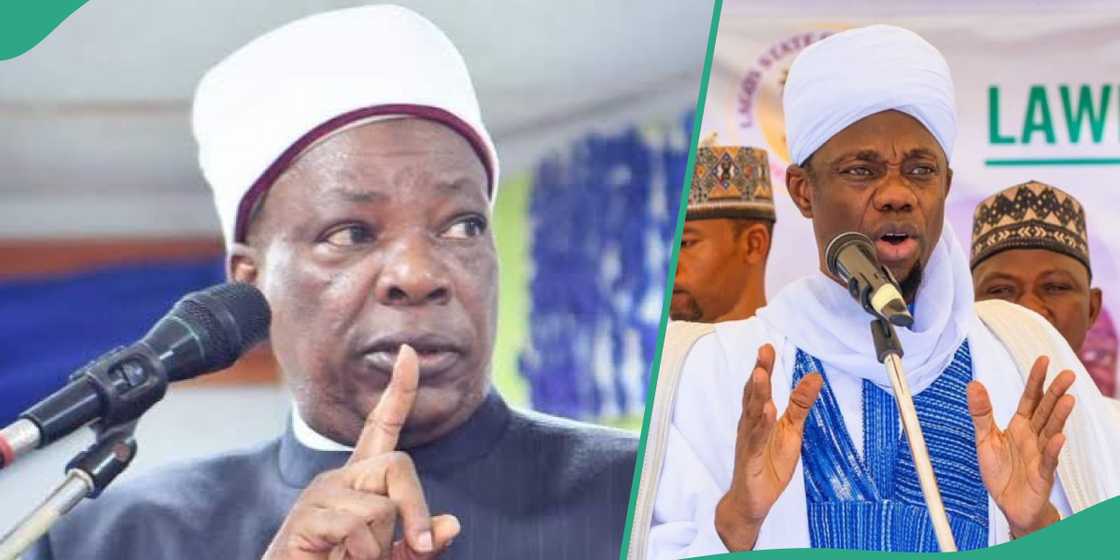
Attack on Mufty of Ilorin: Onikijipa Family Charges Stakeholders to Call Sheikh Habibullahi Al-Ilory to Order
Stakeholders in Ilorin Emirate have been asked to call to order the Mudirul, Markaz Centre for Arabic and Islamic Studies, Agege, Lagos State, Sheikh Habibullahi Adam Al-Ilory, over his persistent attacks on the personality of the Grand Mufty of Ilorin, Sheikh Suleiman Faruq Onikijipa.
In a statement issued in Ilorin on Sunday and obtained by Just Event Online TV , the Magaji Onikijipa Compound, Alhaji Abdulrahman Suyuti Onikijipa, on behalf of the family, said there is no distinction between the descendants of Onikijipa as they remain an indivisible entity.
The statement was titled “No Bastard among the Onikijipa: A Rejoinder to Habibullah Adam Al-Ilory”.
It clarified that the statement credited to Habibullahi Al-Ilory that the father of Grand Mufty of Ilorin, Sheikh Faruq Onikijipa was not a member of Onikijipa was not only false but a lie from the pit of hell.
The statement explained that Sheikh Habibullahi Al-Ilory’s unsubstantiated claim was borne out of mischief and a ploy to create a wedge among Onikijipa family, insisting that the family does not harbour a bastard.
It recalled that this was not the first time the Mudirul Markaz would try to rewrite history of Onikijipa even in explicit contradictions to his father, Sheikh Adam Abdullahi Al-Ilory’s narrations in his mere usual bid to claim the “all-knowing”.
READ ALSO:
- FG declares public holidays for Eid-el-Fitr
- JUST-IN: Ex-Oyo gov Ajimobi’s first child Bisola dies At 42
- Crisis hits LagRide, drivers threaten protest as operators move to withdraw vehicles
The statement noted that Sheikh Habibullahi Al-Ilory was out to discredit the good image of the Grand Mufty of Ilorin, adding that he has made attacks on anyone as his own trademark.
It described as bogus the claim attributed to Sheikh Habibullahi Al-Ilory that only Alfa Alabi Onikijipa is the original Onikijipa and maintained that both Alfa Alabi Onikijipa and Alfa Faruq Onikijipa, the father of the Mufty of Ilorin are brothers and one family.
“We are compelled to release this statement in view of the recent shenanigan being displayed by Habibullah Adam Al-Ilory. We would not have responded to the story he put up in his head for reasons best known to him, but for the important need to set the record straight so that in the future people will not doubt our history as one strong Onikijipa family. This is not the first time this individual has tried to rewrite history even in explicit contradictions to his father’s narrations in his mere usual bid to claim the “all-knowing”. He is the only one who can help us to understand the reasons for doing that. As far as we are concerned, he is just being mischievous.
“On Friday 21st of Ramadan, Habibullah Adam Al-Ilory informed his listeners that he wanted to attack the Onikijipa family. During his daily tafsir, he went astray to attack our family in his usual nonsensical manner, an attempt to create disunity among us. But for his information, we are one strong indivisible family.
“There are some points that need to be addressed.
Habibullah Adam Al-Ilory claimed that our illustrious son, Sheikh Suleiman Faruq Onikijipa, the grand Mufty of Ilorin, is angry with Sheikh Adam Al-Ilory, Habibullah’s father, because the sheikh did not mention Sheikh Suleiman Faruq’s father in his book. This is not only laughable but a lie from the pit of hell. Habibullah should inform us the point at which Sheikh Suleiman said this and in what context. We believe this is just another lie to discredit the Mufty’s good image. That is Habibullah Adam Al-Ilory trade mark: he attacks everyone. He recently did the same to the people of Agbogunmati.
“As if that was not enough, Habibullah Adam Al-Ilory narrated that Sheikh Suleiman’s father is not a member of Onikijipa. This is another nonsense! His theory is that any house or household in Ilorin that is situated outside the main compound is not part of the family. Such a household, according to his theory, must have been given or gifted to the land. They are not originally part of the family. One begins to wonder if Habibullah Adam Al-Ilory remembers where his own family house is situated in Ilorin. It is there for everyone to see.
“Habibullah Adam Al-Ilory, in his desire to create disunity among us, claimed that Alfa Alabi Onikijipa is the original Onikijipa. If we had not heard this ourselves, we would not have believed it is coming from a man, who is expected to know better. But it is not surprising; that is his way. He attacks without a reason. He comes up with all sorts of theories just prove anything! There are instances out there. But this is our story, Alfa Alabi Onikijipa and Alfa Faruq Onikijipa are brothers and one family. There is no separation among us. It is even more worrisome that such a respected scholar is using “show me your father’s grave” theory as a proof of originality. Pathetic!
It is really appreciative if this man is called to order by stakeholders from Ilorin Emirate. Using his own words, he should not let people begin to “dig his own dead”. But we the Onikijipa are learned and respectful. We will not become pig”, the statement read partly.
Attack on Mufty of Ilorin: Onikijipa Family Charges Stakeholders to Call Sheikh Habibullahi Al-Ilory to Order
Politics
Updated: Atiku, Obi, El-rufai, others form coalition to unseat Tinubu

Updated: Tinubu reacts as Atiku, Obi, El-Rufai, others form coalition
Former Vice President Atiku Abubakar says he has formed a coalition with some prominent opposition leaders aimed at unseating President Bola Ahmed Tinubu in 2027.
Atiku made the declaration during a press conference in Abuja on Thursday, attended by several opposition politicians, including former key members of the All Progressives Congress who have since defected.
But the Tinubu-led administration has reacted saying the coalition was driven by hate and not genuine.
The event was convened to address President Bola Ahmed Tinubu’s declaration of a state of emergency in Rivers State.
Among those present at the event were the 2023 Labour Party’s presidential candidate, Peter Obi, who was represented by Dr Yunusa Tanko; former Secretary to the Government of the Federation (SGF), Babachir Lawal; and former Governor of Kaduna State, Nasir El-Rufai.
Others are a former governorship aspirant in Ogun State, Segun Sowunmi; former Director General of Progressive Governors Forum (PGF), Dr Salihu Lukman; Alhaji Adamu Maina Waziri, Chief Peter Ameh and Soni Monidafe, among others.
When asked whether the emerging coalition would serve as the main opposition against the APC in the 2027 elections, Atiku said, “Yes, this is the birth of the coalition of opposition ahead of 2027.”
Many are wondering how leaders with differing ideologies, ambitions, and party affiliations can work together.
In his reaction, spokesperson for the Tinubu-led government, Bayo Onanuga, in a statement referred to the Abubakar-led coalition as “the coalition of Tinubu haters.”
“They are not politicians after the public good. It’s all about their self-interest. They are disgruntled. They are a frustrated lot. The leaders are sore losers. The coalition is an amalgam of Tinubu haters. Their agenda is to stop Tinubu,” Onanuga said.
The presidential spokesperson added that Tinubu remained focused on governance and would not be distracted by a coalition of politicians driven by selfish interests.
-

 metro1 day ago
metro1 day agoRivers administrator Ibas fires Fubara’s political appointees
-

 metro1 day ago
metro1 day agoJUST-IN: Ex-Oyo gov Ajimobi’s first child Bisola dies At 42
-
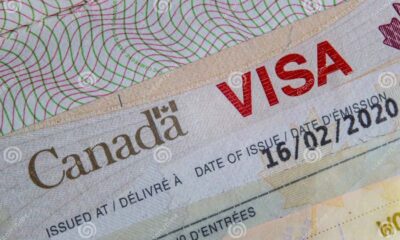
 International2 days ago
International2 days agoCanada removes bonus ranking points for job offers in Express Entry system
-

 metro2 days ago
metro2 days agoHow ritualists, native doctor drugged, murdered underage sisters in PH – Police
-

 metro1 day ago
metro1 day agoFG declares public holidays for Eid-el-Fitr
-

 Sports3 days ago
Sports3 days agoNigeria’s Super Eagles falter in W’Cup qualifiers against Zimbabwe, S’Africa lead, Egypt, Morocco qualify
-

 metro3 days ago
metro3 days agoAkpabio has habit of abusing women, says Atiku
-

 Africa1 day ago
Africa1 day agoNiger coup leader sworn in as president for five years





